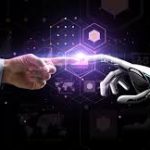Introduction
In 2025, quantum computing has moved beyond theoretical discussions and laboratory prototypes. It is now entering mainstream industries, reshaping global economies, revolutionizing cybersecurity, and changing the way we solve problems once thought impossible. For decades, classical computers relied on binary logic—0s and 1s—to process information. Quantum computers, however, use qubits, which leverage superposition and entanglement to perform complex calculations at unimaginable speeds.
At TechTalkDesk.com, we analyze how this cutting-edge technology is impacting businesses, governments, and society as a whole.
The Rise of Quantum Computing
Quantum computing was once considered the “holy grail” of technology, and in 2025, it is becoming a commercial reality. Tech giants like IBM, Google, and Microsoft have already developed quantum processors capable of outperforming traditional supercomputers in specific tasks. Startups and research labs across Asia and Europe are racing to create scalable quantum systems for wider industrial use.
Unlike traditional machines, quantum computers excel in solving optimization problems, simulating molecular structures, and performing encryption tasks that classical systems cannot. This makes them attractive across multiple fields.
Quantum Computing in Healthcare
One of the most promising applications of quantum computing is in medical research and healthcare. Quantum simulations help researchers design new drugs, predict protein folding, and model diseases more accurately. For instance, pharmaceutical companies are using quantum systems to develop treatments for cancer, Alzheimer’s, and rare genetic disorders.
The COVID-19 pandemic highlighted the importance of rapid vaccine development. By 2025, quantum-assisted modeling is speeding up the process of creating vaccines and treatments, saving both time and resources.
Financial Sector Transformation
Banks and investment firms are adopting quantum computing to manage risk, optimize portfolios, and detect fraud. Traditional algorithms struggle with analyzing millions of financial transactions in real-time. Quantum systems, however, can process vast datasets simultaneously, offering unprecedented accuracy in fraud detection and predictive analytics.
Moreover, hedge funds are using quantum-driven simulations to forecast market trends with greater precision, giving them a competitive edge. This raises questions about fairness in financial markets, as only institutions with quantum access may dominate.
Quantum and Cybersecurity
Perhaps the most controversial aspect of quantum computing is its impact on cybersecurity. Current encryption methods, such as RSA and ECC, are secure against classical computers but vulnerable to quantum attacks. A sufficiently powerful quantum computer could break today’s encryption within hours, exposing sensitive data.
To counter this, researchers are developing post-quantum cryptography—new algorithms designed to resist quantum decryption. Governments worldwide are racing to implement quantum-resistant security before cybercriminals exploit vulnerabilities.
Quantum in Artificial Intelligence
Quantum computing is supercharging artificial intelligence (AI). Machine learning models that once required weeks of training can now be processed in hours. This acceleration allows for faster breakthroughs in areas like natural language processing, robotics, and autonomous vehicles.
TechTalkDesk.com highlights how industries such as logistics, aviation, and manufacturing are combining quantum computing with AI to create more efficient operations. For example, airlines are using it to optimize flight schedules, reducing costs and carbon emissions.
Global Competition and Quantum Diplomacy
Quantum computing has sparked a new form of global competition. The United States, China, and the European Union are leading in quantum research, each investing billions in national initiatives. Smaller nations are collaborating through international partnerships to avoid being left behind.
This technological race is not just about innovation—it is about national security and global influence. Nations that master quantum computing first could dominate global markets, control digital infrastructure, and redefine power in the 21st century.
Challenges in Quantum Adoption
Despite progress, quantum computing faces significant hurdles:
-
Cost: Quantum machines are extremely expensive, with some costing billions.
-
Scalability: Current systems handle only a limited number of qubits.
-
Environment: Quantum processors require near-absolute-zero cooling, making them energy-intensive.
-
Accessibility: Only a handful of corporations and governments have access, creating inequality.
These challenges highlight the need for international cooperation, open research, and ethical guidelines.
Everyday Impact of Quantum Computing
While most people may not directly interact with quantum computers, the indirect benefits are already visible. Smarter healthcare treatments, safer online transactions, cleaner energy solutions, and more efficient global trade will eventually touch everyday life.
By 2030, cloud-based quantum services are expected to be as common as cloud storage is today, allowing startups, universities, and even individuals to harness quantum power.
FAQs
What makes quantum computers different from classical computers?
Quantum computers use qubits, which can represent multiple states at once, allowing them to process information exponentially faster for certain tasks.
Can quantum computers replace classical computers?
No. Quantum computers are designed for specialized tasks like simulations and encryption. Classical computers will still handle everyday computing needs.
Is quantum computing a cybersecurity threat?
Yes. Quantum computers can break traditional encryption, but post-quantum cryptography is being developed to protect data.
Which industries will benefit most from quantum computing?
Healthcare, finance, logistics, energy, and AI-driven sectors are expected to see the greatest impact.
How soon will ordinary people use quantum computers?
Direct consumer access may take another decade, but cloud services will allow broader access by the late 2020s.
Conclusion
Quantum computing in 2025 is no longer science fiction—it is a transformative force. From healthcare breakthroughs to financial modeling, from cybersecurity risks to AI acceleration, this technology is redefining human potential.
TechTalkDesk.com emphasizes that while quantum computing offers immense promise, it also brings challenges that must be addressed through international collaboration, ethical regulations, and inclusive access. The future of quantum technology will depend on whether humanity uses it to solve pressing problems—or to deepen inequalities and geopolitical divides.








